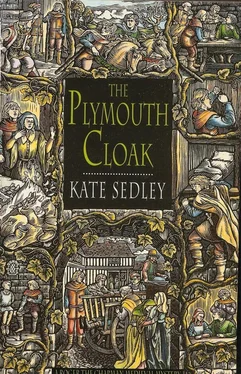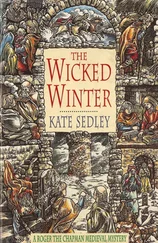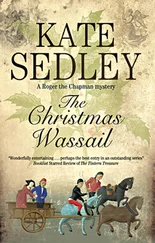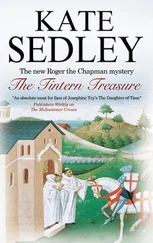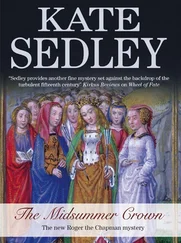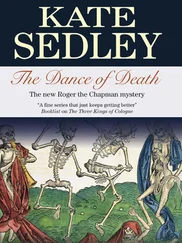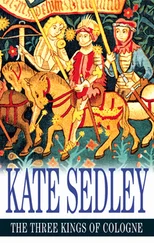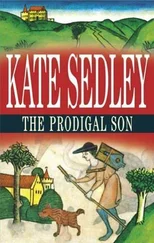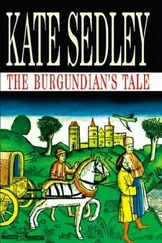Kate Sedley - The Plymouth Cloak
Здесь есть возможность читать онлайн «Kate Sedley - The Plymouth Cloak» весь текст электронной книги совершенно бесплатно (целиком полную версию без сокращений). В некоторых случаях можно слушать аудио, скачать через торрент в формате fb2 и присутствует краткое содержание. Год выпуска: 1992, ISBN: 1992, Издательство: Harpercollins, Жанр: Исторический детектив, на английском языке. Описание произведения, (предисловие) а так же отзывы посетителей доступны на портале библиотеки ЛибКат.
- Название:The Plymouth Cloak
- Автор:
- Издательство:Harpercollins
- Жанр:
- Год:1992
- ISBN:9780061043208
- Рейтинг книги:3 / 5. Голосов: 1
-
Избранное:Добавить в избранное
- Отзывы:
-
Ваша оценка:
- 60
- 1
- 2
- 3
- 4
- 5
The Plymouth Cloak: краткое содержание, описание и аннотация
Предлагаем к чтению аннотацию, описание, краткое содержание или предисловие (зависит от того, что написал сам автор книги «The Plymouth Cloak»). Если вы не нашли необходимую информацию о книге — напишите в комментариях, мы постараемся отыскать её.
The Plymouth Cloak — читать онлайн бесплатно полную книгу (весь текст) целиком
Ниже представлен текст книги, разбитый по страницам. Система сохранения места последней прочитанной страницы, позволяет с удобством читать онлайн бесплатно книгу «The Plymouth Cloak», без необходимости каждый раз заново искать на чём Вы остановились. Поставьте закладку, и сможете в любой момент перейти на страницу, на которой закончили чтение.
Интервал:
Закладка:
A scullion, detailed to wait on us, and only too pleased to have a brief respite from washing his greasy pots and pans, placed two mazers of ale in front of us, managing to slop most of the liquid on the table. He withdrew hurriedly before we could complain. I stared after his retreating back without really seeing it. 'But what's all that got to do with the dwarf?' I queried.
Philip Underdown sucked his teeth. 'He was part of the cargo.'
It was a moment or two before his words sank in, then I exclaimed in horror: 'You were a slaver!' I knew also why his accent was familiar to me. He came from Bristol, and the people of that city have been involved in slavery for centuries, trading mostly with their neighbours in southern Ireland.
There is a story, often repeated in my part of the world, that long, long ago, King John complained that there were more Bristolians to be found in Dublin than Irishmen; people sold by their own families as servants.
My companion looked at me with cold amusement. 'I bought and sold unfortunates like Paolo. Parents and relatives of these creatures are only too willing to be rid of them, and most of them are very poor. A few shillings can make all the difference between starvation and survival. As for the midgets themselves, they often end up well clothed and fed in some noble household. What do you think Paolo's life would have been if I'd left him in Italy? Laughed at, derided, an outcast from his own kind. When I came across him, he was living with his father's pigs in their sty.'
I felt confused by this argument. Instinct told me that trading in human flesh was evil, but at the same time I could see that its results might sometimes be beneficial. I mustered the only counter-argument I could think of on the spur of the moment. 'But Paolo hates you.'
Philip Underdown smiled scornfully and said thickly, through a mouthful of stew: 'Of course he hates me. They all hated me and my brother. These creatures were our merchandise. We had no time to wet-nurse them through all the hazards of a journey, either to or from these shores. A certain amount of — what shall I say? — harshness was inevitable.'
I stared at him, fascinated by a callousness which could admit so much; by his complete indifference to what anyone thought of him. Nothing I could say or do, however, would awaken in him a sense of wrongdoing, so it was pointless to try. I asked: 'But why was a sea journey necessary? As you have just indicated, these mannikins exist in every country.'
He shrugged and finished the remaining stew in his bowl.
'Common sense. It's better to sell them in a foreign land, where they are unable to run away and return home whenever the fancy takes them. So we sold English dwarfs in Italy and France, and French and Italian dwarfs over here. At one time, there was a great demand for English dwarfs in Italy. No noble household was complete without one.' 'I wonder you could find so many.'
Again Philip Underdown shrugged his powerful shoulders. 'There are always ways and means if one knows them. Paolo I was lucky enough to sell into the Duke of Gloucester's household. By some means or another the Duke came to hear of my history and circumstances, and suggested me to King Edward as a possible Royal Messenger.
Someone who had travelled a great deal abroad and who could take care of himself. Which makes it all the more galling to have you foisted on to me for a mere two-day trip from Exeter to Plymouth. What does he think I am? An incompetent child?'
'He's taking no chances. This letter you're carrying seems to be important.'
'They're all important,' he retorted huffily. 'Why should this one be any different?'
I wondered whether or not to broach the subject of the Duke of Clarence, but in the end decided against it. I felt I would probably get an evasive answer, and that I had asked enough questions for the time being. We had two days and nights before us, during which I might well be able to discover more. I swung both legs over the bench and stood up. 'I'm ready to go if you are.'
He nodded, wiped his mouth on the back of his hand and rose to his feet. 'Our horses are waiting for us in the Bishop's stables. I'll show you the way.'
'I must get my stick first. It's with my pack in the entrance hallway.'
I duly collected it, along with my razor and a short, black handled knife which I used for eating, knotting the two latter inside a square of stout, closely-woven woollen cloth that I happened to be carrying. Then I followed my companion out of the Palace and across the hundred or so yards to the stables.
Philip Underdown's mount was a large, fiea-bitten grey, a showy animal who rolled an intelligent eye in my direction, it gave, I noticed, no whinny of pleasure at the approach of his master. I was to ride a sturdy chestnut cob, to use its modem name; although in my youth those placid, good-natured creatures were known as rounceys. My few belongings went into the saddle-bag, but, as I had foreseen, the cudgel presented something of a problem. In the end I was persuaded, very reluctantly, to shorten it by several inches so that I could carry it across my saddle-bow.
'Easier to use, I should think,' Philip Underdown commented. 'You can take more of a swing with it. Not so unwieldy. Anyone could handle something of that size.' 'You obviously know nothing of the art of cudgel-sticks,' I answered tersely, restoring a little of the self-esteem which had been eroded by my clumsy mounting of the cob; an effort that had afforded much amusement to both my charge and the spotty-faced stable-boy who was assisting us. 'Shall we be on our way? We want to reach Buckfast before dusk.'
In fact, we had cleared the busy streets of Exeter and were moving south at a steady pace before the sun was much lower in the sky. The haze of early autumn clouded the valleys and hung over the hills like gauze. The track along which we rode was almost deserted, studded here and there with gorse bushes, the golden flowers embattled behind sharp black spikes. Mossy cushions of emerald-green indicated where rain had collected in dents and hollows of the underlying granite. The sudden bark of a raven was all that disturbed the quiet.
Mid-afternoon, we left the track, dismounted and turned the horses loose to crop the stunted grass. Philip Underdown and I sat, the sun on our faces, our backs against a convenient boulder, letting the last of the day's warmth seep into our bones. I badly needed the rest, although I would have suffered torture rather than admit it. But the truth was that every muscle and sinew of my thighs and buttocks felt as if it were being tom apart by red-hot pincers. My arms and shoulders ached with the effort of controlling even so placid a mount as mine. I leaned my head against the rock and briefly closed my eyes watching red and orange suns roll up under my lids, thankful that my companion seemed preoccupied with thoughts of his own and disinclined to mock at my discomfort.
I have no idea what suddenly jerked me out of my doze, propelling me forward, my spine stiff with tension, my hands pressed hard down beside me on the ground; some interaction of the senses, perhaps, as when an animal scents danger. My eyes flicked swiftly from left to right, trying to locate the source of my fear. On the skyline, where the moor shelved steeply upwards, were two enormous outcrops of granite, common to that part of the world. And standing between them, clearly outlined against the rays of the dying sun, was the figure of a man…
I must have let out an oath because Philip Underdown, lounging beside me, his eyes half closed, sprang to his feet, his fingers already clasped about the handle of the dagger in his belt. 'What is it?' he demanded.
'A man,' I whispered. 'Up there! Between those two piles of rocks.'
I raised my hand, but when we both looked there was nothing to be seen, only the blurred distances and the sunlight striking against the granite, and the empty, silent path o f tuff.
Читать дальшеИнтервал:
Закладка:
Похожие книги на «The Plymouth Cloak»
Представляем Вашему вниманию похожие книги на «The Plymouth Cloak» списком для выбора. Мы отобрали схожую по названию и смыслу литературу в надежде предоставить читателям больше вариантов отыскать новые, интересные, ещё непрочитанные произведения.
Обсуждение, отзывы о книге «The Plymouth Cloak» и просто собственные мнения читателей. Оставьте ваши комментарии, напишите, что Вы думаете о произведении, его смысле или главных героях. Укажите что конкретно понравилось, а что нет, и почему Вы так считаете.
